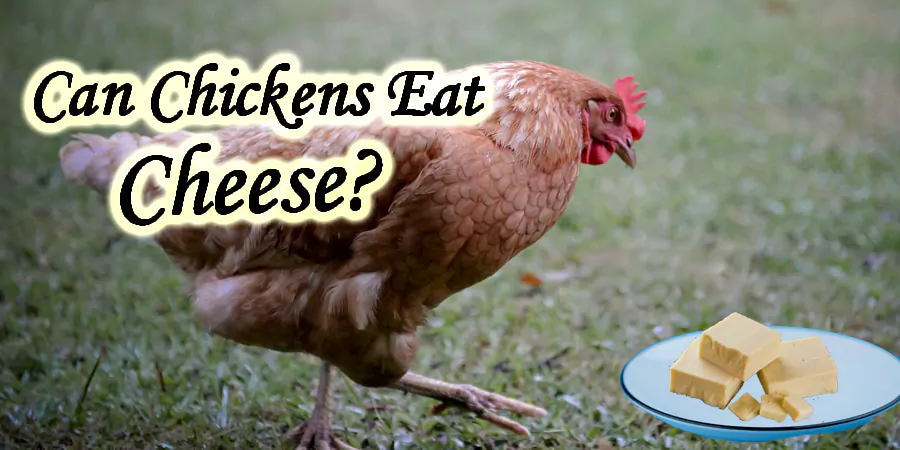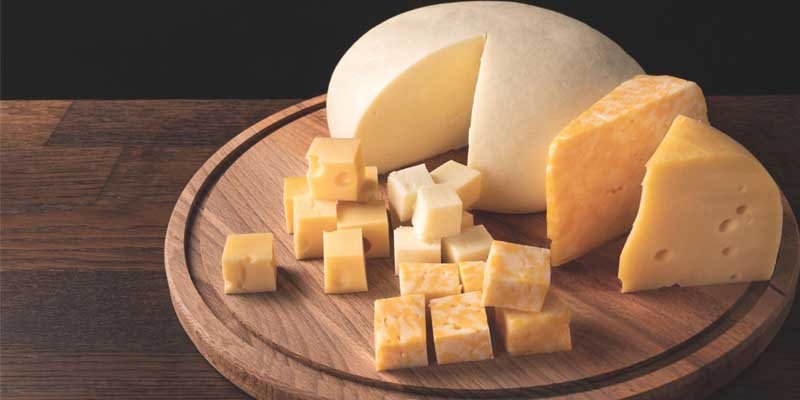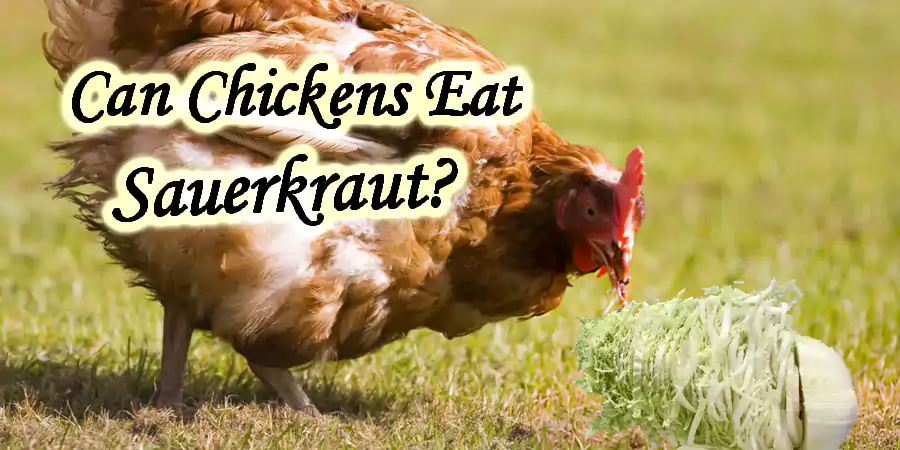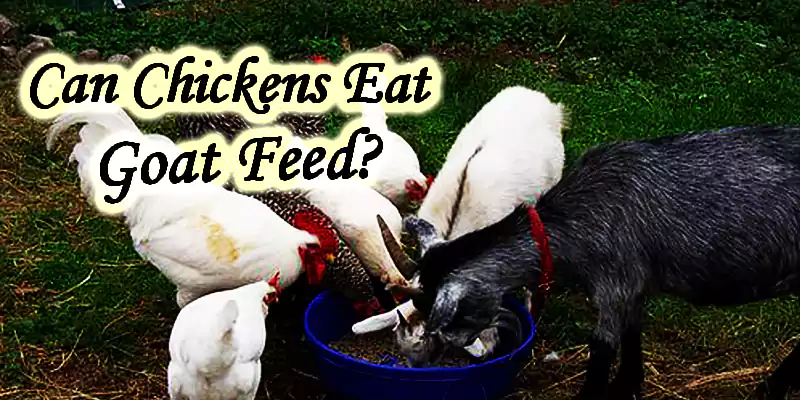Can Chickens Eat Cheese? An Ultimate Guide
Published: 14 Oct 2024
Chickens have a diverse range of culinary preferences, and poultry owners are scratching their heads about how to provide them safe and nutritious food. In their curiosity, one problem arises: Can chickens eat Cheese?
Cheese can be served in many ways and forms, each of which must be analyzed individually. If you are in the same confusion, then accompany us through this exploratory journey to understand its pros and cons for your backyard flock.

Can Chickens Eat Cheese? An Ultimate Solution
Cheese is loved by humans but it can cause some health issues for your birds. It is also important to figure out benefits and risks associated with them. So, carefully examine its types and products before serving it to your flock.
What is Cheese?
It is a dairy product made from the milk of cows, buffalo, sheep, and goats. It is produced by a coagulating process in which curds are separated from the liquid content. It is available in different tastes and textures. It is a nutrient-rich food, especially packed with vitamin B12.
Is it Safe for Chickens to Eat Cheese?
Cheese introduces a twist in the dietary plan of chickens, but there are concerns about its safety perspectives. The question mark is labeled because of its lactose properties. Lactose is a type of sugar present in milk and can create digestion problems.
Contrary to humans, chickens lack some supportive enzymes to digest it. It has fat, which can result in obesity. There is salt content, which harms their health. So, after taking some precautionary measures to prevent these risks, it is safe for chickens in moderation.
Nutritional Content of Cheese
Cheese is a dairy product packed with healthy nutrients. It contains high-quality protein, which helps in muscle development. It is also filled with fat, which is good for weight gain. Its calcium content strengthens the bones. Other minerals include zinc, phosphorus, and selenium.
It is full of vitamins A and B complex. This healthy vitamin content is good for improving their eyesight and metabolism. Lactose (natural sugar) is also abundant. There is a decent amount of salt, which can damage their healthy growth.
What Types of Cheese Can Chickens Eat?
Can Chickens Eat Cottage Cheese?
Yes, chickens can have cottage cheese sparingly in a moderate volume. It is packed with various nutrients that help maintain good health and optimal growth in your flock. It contains proteins that improve feather growth and egg production in backyard clucking birds. Calcium enhances the bone strength and improves the quality of the eggshell.
The lactose content is a major concern for chicken enthusiasts. Experience poultry keepers have observed digestive issues with excessive intake. Diarrhea and gastrointestinal problems are potential outcomes of cheese intolerance. So, avoid using cottage cheese as the primary chicken diet.
Can Chickens Eat Feta Cheese?
Yes, They can have feta cheese in moderation after following some precautionary steps. It is made from sheep’s milk or sometimes with sheep and goat milk. It also contains a high lactose content, which can cause hurdles in the digestion. The best solution to this problem is to keep the portion of feta cheese to a minimum level in chicken’s diet.
It is nutritionally attractive to chicken owners. It contains a decent amount of protein and calcium. Sheep and goat milk have a good amount of salt, which can result in dehydration in clucking friends. So, it should be served occasionally and adjusted according to the flock’s response.
Can Chickens Eat Ricotta Cheese?
Yes, chickens can have Ricotta Cheese in limited amounts. Avoid using it as a primary diet for your flock. It contains protein and calcium content, which is helpful for egg production. The major worry is their lactose content. It is difficult to digest for various breeds of clucking birds. We advise you to serve it sparingly. If you over-feed, it could lead to diarrhea or bloating problems.
Can Chickens Eat Parmesan Cheese?
Like ricotta, parmesan cheese is also sparingly recommended for chickens. It contains a high amount of lactose, which is not suitable. Some chicken breeds are lactose-sensitive and face problems in their digestion. Parmesan has a high amount of salt, which is harmful for healthy growth. Considering these parameters, we advise you to serve it occasionally with caution.

Can Chickens Eat Pasta and Cheese?
Yes, chickens love to peck at pasta and cheese. It is important to identify hazards and take precautionary steps accordingly. Since pasta is made of wheat flour and water, it provides tons of carbohydrates like Rice. When you cook pasta, ensure that no artificial flavors or seasonings are added. There should be a minimum of melted cheese in pasta. Additionally, never include onion and garlic in it. So, serve it without additives in moderation.
Can Chickens Eat Pimento Cheese?
No, Pimento Cheese is not recommended for chickens. It is made of mayonnaise, and pimento peppers. We are rejecting it for various reasons. It contains high fat and salt content. Excessive amounts of fat may cause obesity or other health issues.
Salt promotes the chances of dehydration. Mayonnaise generally contains garlic and onion, which are not reccomended. We have noticed that it is available in the market includes seasonings. So, keep your flock healthy by avoiding it.
Can Chickens Eat Shredded Cheese?
Shredded cheese has some variations, like mozzarella and cheddar cheese. All of the varieties can be served to chickens in moderation. It has calcium and protein content, which support overall growth. The lactose portion makes the digestive process difficult. Above all, moderation is a key factor for the safety of your flock.
Can Chickens Eat Brie Cheese?
Yes, chickens can have soft cheese in moderation. It is made of cow’s milk, which has a mild flavor. You must consider some precautions to make brie cheese safe for your flock. It can cause obesity issues because of high fats. The lactose portion is difficult to digest. Both hazards can be mitigated by serving it in low quantities. Additionally, serve itplainly without any artificial flavors.
Can Chickens Eat String Cheese?
Yes, chickens can eat string cheese in limited amounts. It is made of mozzarella. It is famous for its stringy texture and mild flavor. It provides a good volume of proteins, which is helpful in egg production. It has a lower lactose content level than other types. It is advised never to use artificial flavors and seasonings. Serve plain version to your flock in moderation. Introduce gradually and check for their response.
What Cheese Products Can Chickens Eat?
Can Chickens Eat Cheese Puffs?
No, you shouldn’t serve Cheese puffs to your flock for various reasons. Snack foods often have high volumes of salt, fat, and other unhealthy additives. Serving it may cause dehydration issues. High fatty content will disturb the weight balance. Additional flavors, colors, and preservatives are harmful and unhealthy for the flock. It lack essential nutrients for the flock. How can we serve unhealthy and less nutrient food to the flock? So, avoid opting for such food.
Can Chickens Eat Cheese Popcorn?
No, chickens can’t consume cheese popcorn. We condemn using any type of flavored popcorn for the clucking champions. They are high in salt and fatty content. Both of these components are hazardous. Like puffs, popcorns have artificial flavors and are preserved with unhealthy content. Above all, it lacks nutritional value compared to other dietary options. So, we recommend you, from our experience, avoid serving it to your flock.
Can Chickens Eat Cheese Pizza?
Humans love to have cheese pizza and can easily consume it. For several reasons, it is not suitable to have it in their diet. Pizza contains a lot of cheesy topping, which could be better for chickens. Pizza dough is made from yeast, flour, and water. These ingredients are full of sugar content. It can create digestion problems . Topping pizza involves the introduction of sauces, spices, herbs, and meat, which are unhealthy. So, we suggest you serve some nutrient-rich foods.
Can Chickens Eat Macaroni and Cheese?
No, macaroni and cheese are not recommended for chickens. Macaroni is typically made for humans and contains some ingredients that are unhealthy. It creates digestion problems if served in large quantities. The pasta included is made from wheat flour and water, which is not a favorable food. The sauce is comprised of milk and butter. The seasonings used are not suitable.
Can Chickens Eat Cheese Burgers?
No, the chicken should not munch on cheeseburgers. We did not recommend any fast food. They have a high fat content, which can cause obesity. Additives and preservatives containing salt are also added, which are harmful to digestion. Wheat flour is used to create a burger bun. Sauces and toppings included in burgers are not good for chickens. Considering these hazardous factors, we do not favor serving such food to our flock.
Can Chickens Eat Cheese Balls?
No, we are not recommending serving cheese balls for chickens for various reasons. The ingredients included are not safe for chicken’s health. It contains salt and fatty content, which is not favorable for clucking birds. Various additives and artificial flavors are used that are fatal. Additionally, cheese balls have low nutritional value. So, we advise you to not serve them to your flock.
Benefits of Cheese for Chickens
We have analyzed the nutritional profile of Cheese. It contains some healthy nutrients that are supportive of chicken growth. Here are common benefits:
|
Potential Hazards of Cheese for Chickens
Besides benefits, there are some potential risks for the backyard flock. Timely identification and remedial measures can minimize the risks. Keeping the portion of Cheese in the routine diet is the best practice to reduce the risk factor. Here are some negative effects of Cheese for chickens:
|
Alternative Foods for Chickens
After understanding the ins and outs of Cheese and its products, if you are not in favor of serving it to your flock, then consider these alternatives:
- Vegetables: Vegetables are natural and healthy sources of nutrients. Celery, Spinach, Cabbage, and sauerkraut are highly recommended vegetables. Serve in moderation.
- Fruits: They enjoy the fruity flavor of fruits. Most of the fruits contain nutritious content. Apples, black olives, bananas, figs, and blackberries are famous fruits served.
- Grains: Grains are healthy foods for your flock. They are easily available across the world. Oats, wheat, barley, corn, and rice are served occasionally. Grains are good for diversifying their diet plans.
- Seeds: Seeds are tiny and nutritious foods. They are easily available and comparatively cheaper diets for your flock. Pumpkin seeds, Chia seeds, and hemp seeds are commonly used varieties of seeds.
- Legumes: Chickens love beans, peas, and lentils in their routine diet. These legumes can be served raw or cooked. Chickpeas and sugar snap peas are commonly used legumes.
Conclusion
We have concluded that Cheese contains beneficial nutrients for chickens. In a limited portion, it is healthy for the flock. However, cheese should never be included as the primary content of the flock’s routine diet. Excessive use of Cheese will negatively affect the growth of our backyard flock.
It is good to sparingly incorporate cheese into the routine diet. Avoid serving moldy Cheese to your feathered friends. Make sure that it involves minimum sweeteners or salty ingredients. Look for the reaction of your flock and consult with the nearby veterinarian if you observe something unusual.

- Be Respectful
- Stay Relevant
- Stay Positive
- True Feedback
- Encourage Discussion
- Avoid Spamming
- No Fake News
- Don't Copy-Paste
- No Personal Attacks

- Be Respectful
- Stay Relevant
- Stay Positive
- True Feedback
- Encourage Discussion
- Avoid Spamming
- No Fake News
- Don't Copy-Paste
- No Personal Attacks


